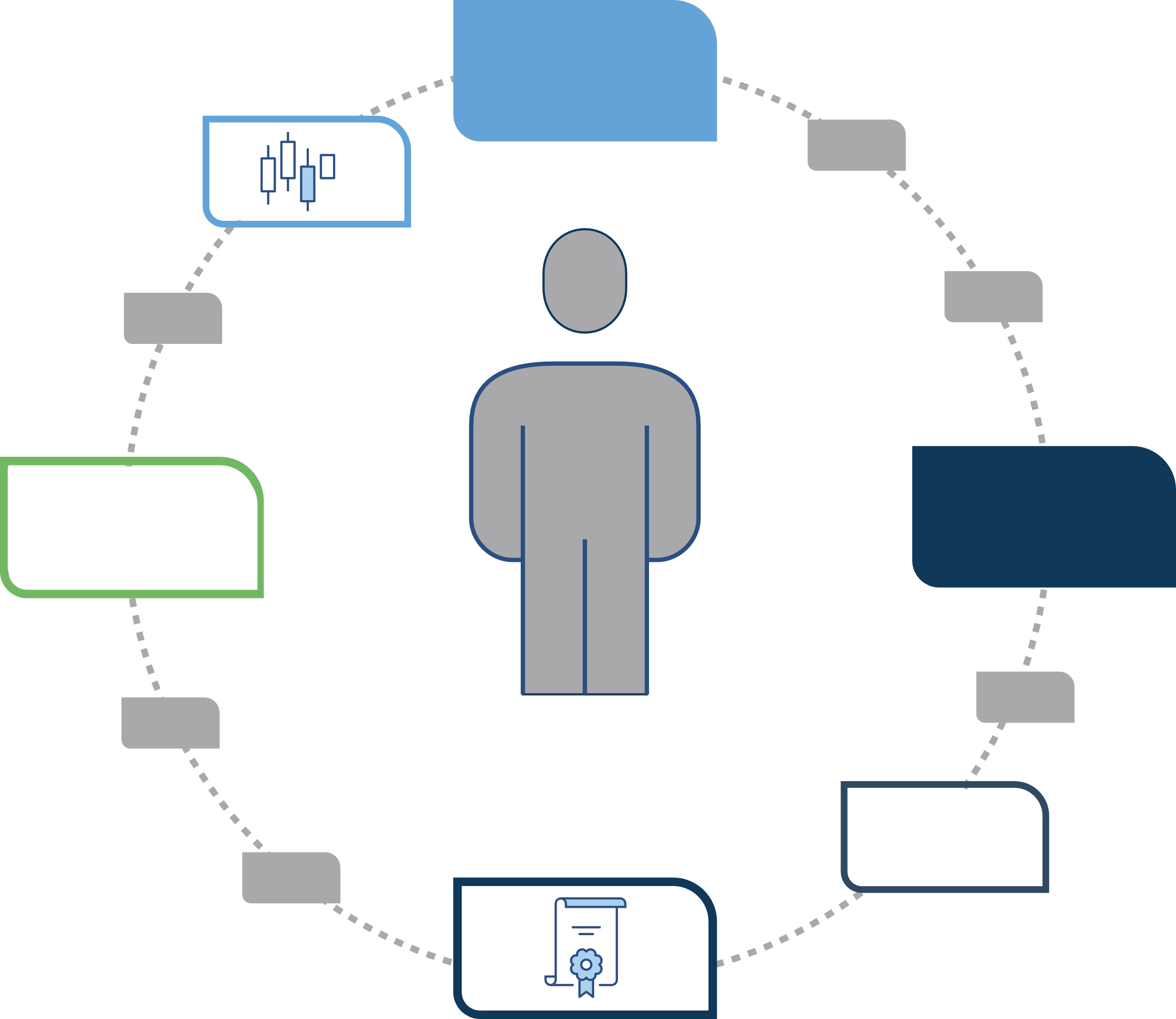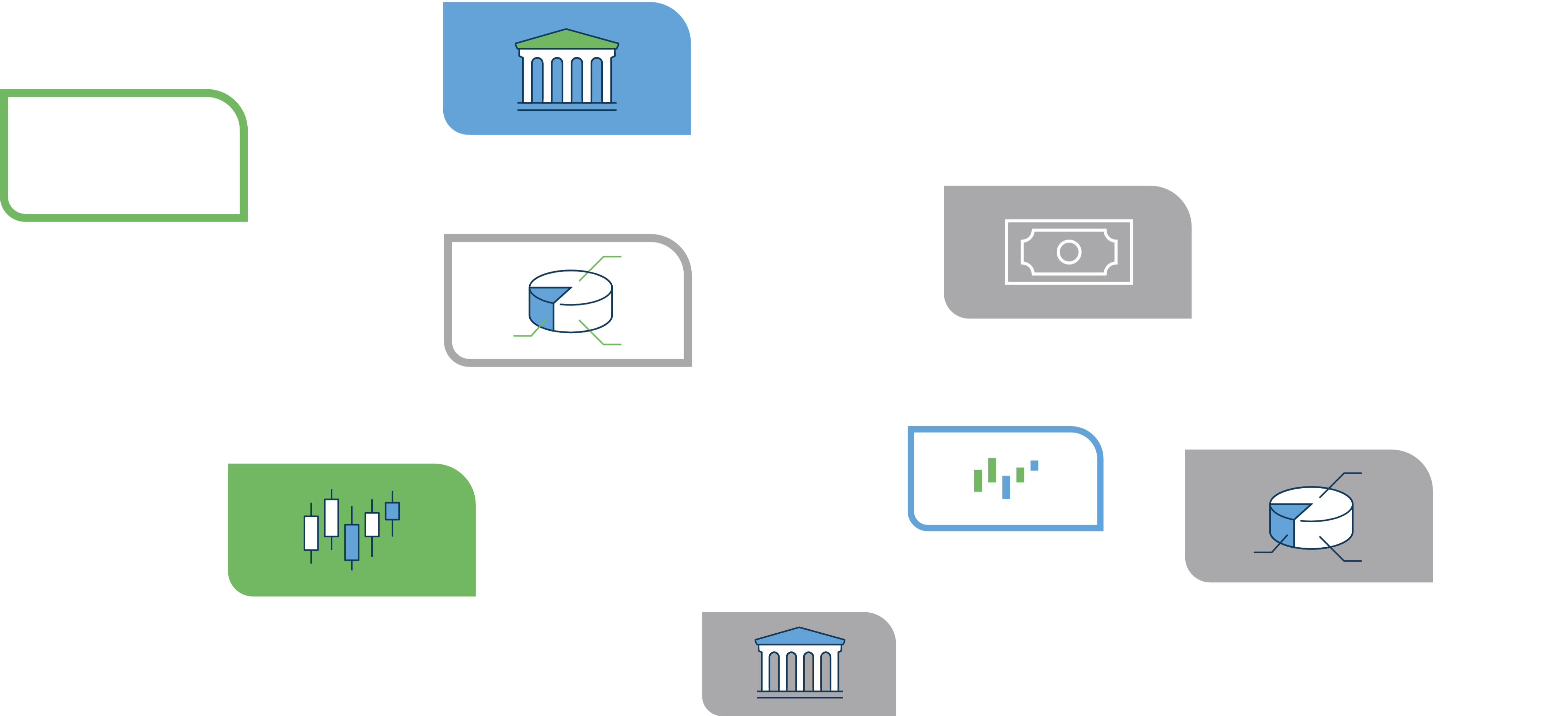
Historically, financial advisors supplemented stock picks with mutual funds as a way to invest in "the market." Mutual fund managers would take a big pool of investor money and use it to buy and sell a wide array of stocks, bonds or other assets.
Mutual funds can be great. They make it so individual investors, or financial advisors, don't have to search for their own stocks or bonds. The fund managers worry about when to buy and sell, and the investor benefits from diverse investments with less work. But there are downsides: mutual fund managers charge fees, you usually need to invest a chunk of money up front, and it can be tough to access your money when you need it.

In the 1990s, exchange-traded funds (ETFs) disrupted the financial services industry. ETFs offer the benefits of a mutual fund — like exposure to a diverse group of assets — with fewer downsides. Instead of making a big upfront investment, investors (or financial advisors) can buy or sell shares of these funds on an exchange, like the name implies. This means ETFs trade similar to a stock.

Why does that matter?
It makes it easier for us to manage your money. We can adjust your investment strategy and follow trends without having to rely on a fund manager. We can also change the way you're invested without having to withdraw your money from one mutual fund and deposit it into another, which can take time and incur fees.
Plus, ETFs usually have lower fees than mutual funds. This is often because they're managed passively, sometimes by an algorithm. This allows ETFs to more efficiently track different markets, assets, and trends. In fact, if you've ever heard someone advise you to "just invest in the S&P," that person is likely suggesting you invest in an ETF that tracks the S&P 500.
Global Trends Investments' founder Tom Lydon is at the forefront of ETFs, providing advice and insights to others in the financial services industry. And while other financial advisors are starting to catch up, when you work with GTI, you're working with us.
At GTI we use ETFs to follow market trends. We'll select funds that match your risk tolerance goals and timelines. And because we know the ETF markets so well, we may be able to spot unique opportunities that other investors do not.
Say you want to invest in biotech stocks. Another financial advisor might tell you that biotechs are a historically risky investment. At GTI, we can help you explore ETFs that track biotech stocks, as well as ETFs that track the healthcare industry and might provide indirect exposure. We can help you invest in the trends that interest you in a way that matches your risk tolerance.
To read more about Tom's expertise in ETFs, explore the website he founded to explain ETF trends to other financial professionals.